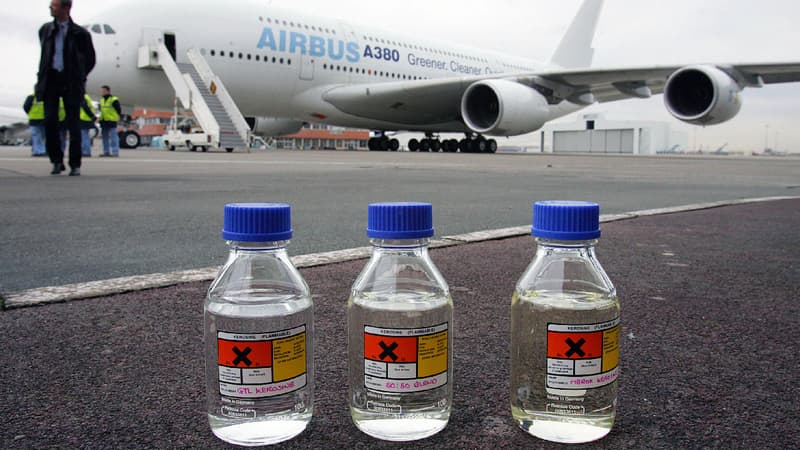Air France-KLM has concluded contracts to secure almost a third of the non-fossil fuels needed to achieve its 2030 environmental goals, the Franco-Dutch airline group announced on Tuesday.
These firm orders, the amount of which is not specified, represent 1.6 million tons of sustainable aviation fuel (SAF): one million ordered from the Finnish company Neste, covering the period from 2023 to 2030, and 600,000 tons from the American company DG Fuels, for 2027-2036, Air France-KLM said in a press release.
This is a “first step” towards achieving the group’s ambitions to incorporate 10% SAF in its aircraft by 2030 – these purchases will cover around a third of these needs, according to the group and talks “are ongoing” with others. providers.
Reduce CO2 emissions by 30% by 2030
The group of airlines points to a 30% drop in its CO2 emissions per passenger-kilometre, the sector’s reference unit, in 2030 compared to 2019. The company Air France specified last April that this meant a 12% drop in their emissions in absolute value, the difference being due to the expected growth in traffic.
The incorporation of 10% turns out to be “more ambitious” than the European objectives under discussion for 2030, which would be 5%, Fatima Gloria de Sousa, vice president of the group in charge of sustainable development, explained to AFP.
Air transport stands out for its contribution to global warming, although it only represents between 2.5 and 3% of global CO2 emissions.
But this relative participation is destined to increase, given the rate of growth that the sector expects, beyond the effects of Covid-19 that reduced its 2021 clientele by half compared to 2019.
That year, 4.5 billion air trips were made worldwide. In 2050, the International Air Transport Association (Iata), the voice of business, forecasts 10 billion.
Iata members, as well as States at the UN level, have committed to “net zero emissions” of CO2 for air transport in 2050, mainly thanks to SAF, whose production is currently embryonic: l ‘Iata wants to reach the 30 billion liters available in 2030 compared to 125 million in 2021.
Source: BFM TV


